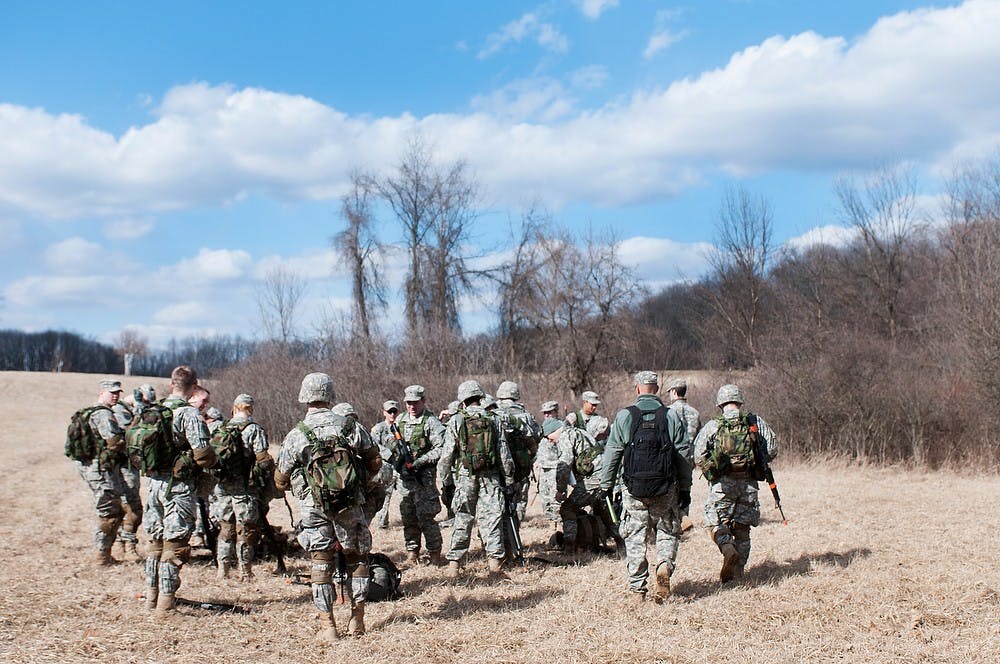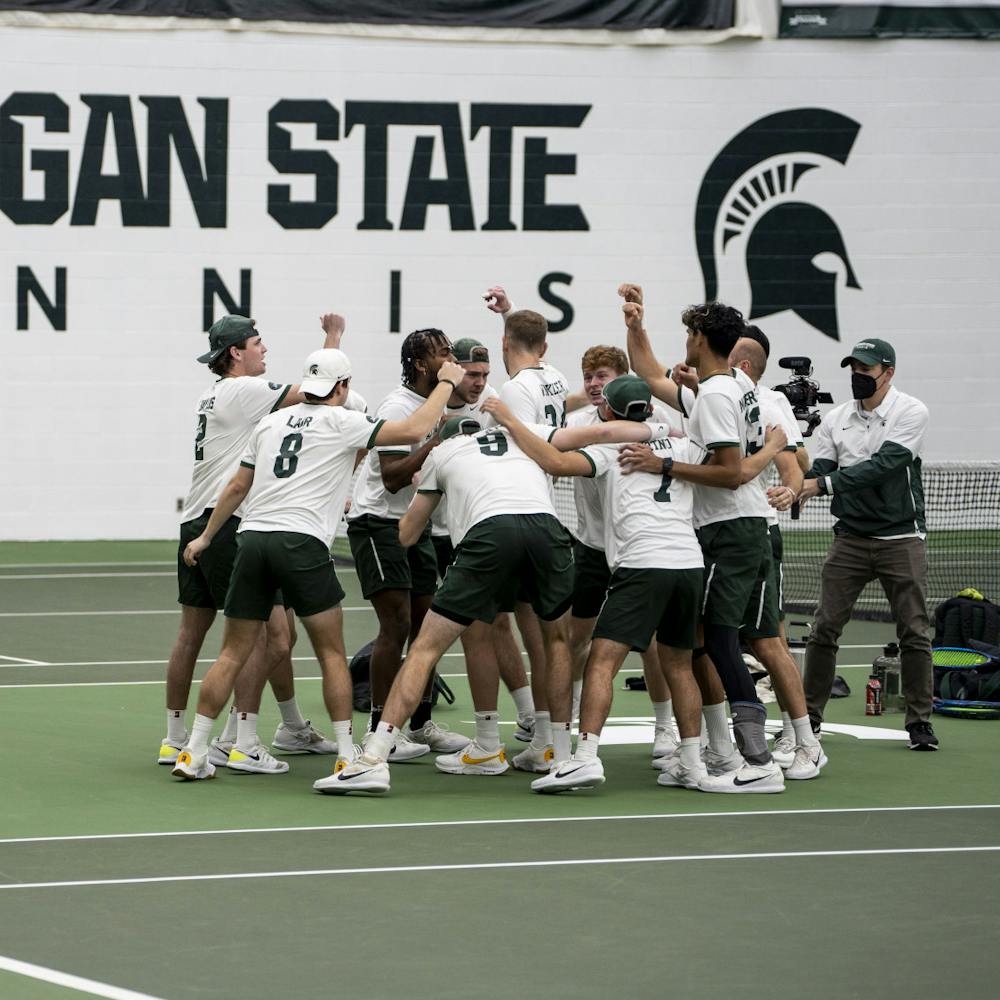With a growing MSU Army ROTC program and continuous student veteran enrollment, faculty and students in the program hope to see increasing resources to help service members navigate financial aid and deal with a lesser known problem — emotional trauma from serving overseas.
Economics junior Jerred Pender served two active duty combat tours in Afghanistan with the Army’s 82nd Airborne Division as an E-5 Infantryman. Pender, next year’s president of the MSU chapter of Student Veterans of America, or SVA, said the organization is trying to establish a designated resource room where information is available on post-traumatic stress disorder, along with other resources for veterans.
Pender said although it’s a misconception that every person in the military has post-traumatic stress disorder, or PTSD, it’s important to have resources for those who are suffering with the anxiety disorder.
“You’ve served (in the military) your entire life, and now that you can’t, you feel worse,” Pender said. “They drown in their thoughts, and the biggest problem with PTSD is that they have time to think about things that they have seen or done.”
Olin Health Center nursing administrator Dawn Boechler said after a grant to fund faculty training on PTSD was denied, officials at Olin and the Counseling Center have been coordinating for a speaker to hold an all-day workshop about PTSD counseling. University counselors and Army ROTC officers also hope to bring a specialized veterans counselor to the university.
“When you have your own training and exposure, it really heightens your awareness and empathy for that individual that’s sitting right there. You know the questions to ask,” Olin Health Center clinical social worker Karen Boyd said.
It’s unknown exactly how many MSU students would benefit from more services, but mental illnesses, such as PTSD, affect student military members across the country.
Of 628 surveyed student veterans — 60 percent of whom were in direct combat exposure in Operation Iraqi Freedom and Operation Enduring Freedom — about 46 percent showed strong symptoms of PTSD and 8 percent attempted suicide, according to a 2011 study by David Rudd, scientific director of the National Center for Veterans Studies and dean of the College of Social and Behavioral Science at the University of Utah. Even that number might be low.
“It’s underreported because, even in my experience here on campus with students and veterans, (the mentality) is ‘I’ve got all my fingers and toes. I came back better than my buddy did, or somebody else did,’” said chairperson for the Department of Military Science Lt. Col. Jeff McDonald. “There is a perception around that — if you seek help, it’s a sign of weakness.”
Despite the stigma that might come from seeking help, McDonald and others still said it’s important to have resources on campus for military students.
“We want a designated office on campus, U-M has one, Western has one, LCC has one, except they are limited in regards to having an outsource of a counselor or psychiatry department,” Boechler said. “They really need to do that here.”
Support student media!
Please consider donating to The State News and help fund the future of journalism.
Discussion
Share and discuss “ROTC fighting for veterans, PTSD resources on campus” on social media.







